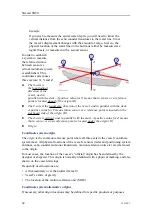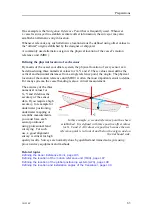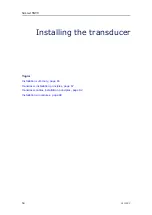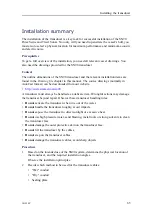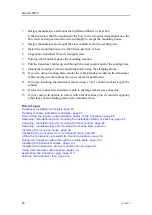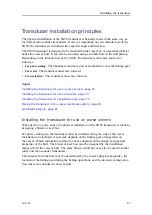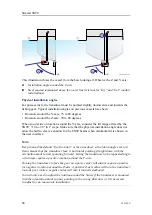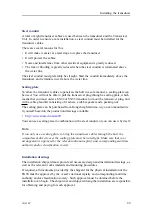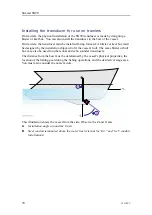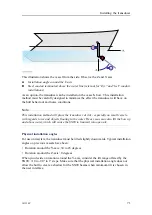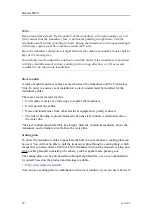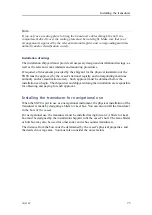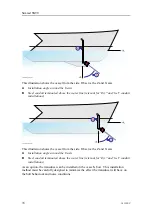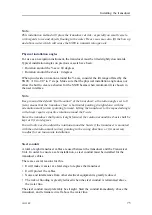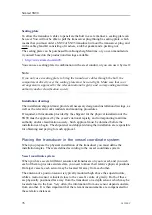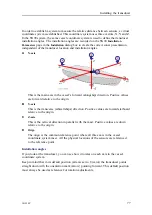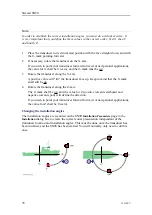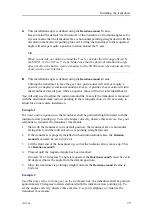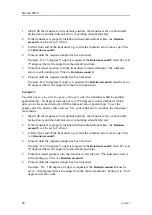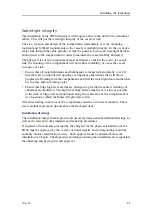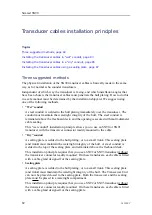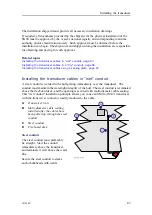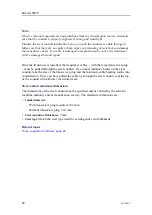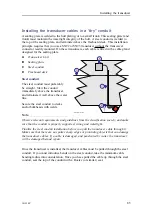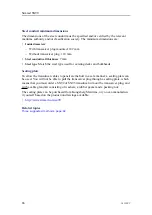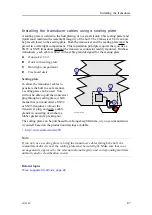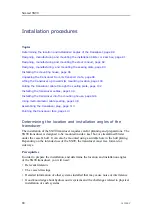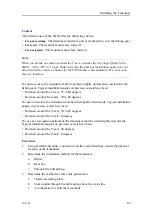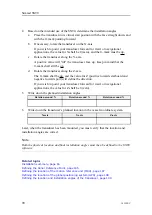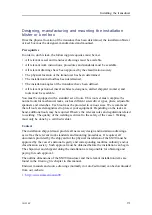
76
381298/C
Sealing plate
To allow the transducer cables to penetrate the hull in a safe manner, a sealing plate can
be used. You will not be able to pull the transceiver plug through a sealing plate, which
means that you must order a SN92 or SN93 transducer
without
the transceiver plug, and
with a cable gland kit consisting of washers, a rubber gasket and a packing nut.
The sealing plate can be purchased from Kongsberg Maritime, or you can manufacture
it yourself based on the production drawings available.
•
You can use a sealing plate in combination with a steel conduit, or you can use it by itself.
Note
If you only use a sealing plate to bring the transducer cables through the hull, the
compartment directly over the sealing plate must be watertight. Make sure that your
arrangement is approved by the relevant national registry and corresponding maritime
authority and/or classification society.
Installation drawings
The installation shipyard must provide all necessary design and installation drawings, as
well as the relevant work standards and mounting procedures.
If required, all documents provided by the shipyard for the physical installation of the
SN90 must be approved by the vessel’s national registry and corresponding maritime
authority and/or classification society. Such approval must be obtained before the
installation can begin. The shipowner and shipyard doing the installation are responsible
for obtaining and paying for such approval.
Placing the transducer in the vessel coordinate system
When you prepare the physical installation of the transducer you must define the
installation angles. These are defined according to the vessel coordinate system.
Vessel coordinate system
When you have several different sensors and transducers on your vessel, and you wish
each of them to provide accurate data, you need to know their relative physical positions.
On larger vessels, each sensor may be located far away from each other.
The antenna of a position sensor is typically mounted high above the superstructure,
while a motion sensor is located close to the vessel’s centre of gravity. Both of these
are physically positioned far away from the transducer on a depth sensor, which may be
located closer to the bow. Very often, the information from one sensor depends on data
from an other. It is then important that the relevant measurements are compensated for
these relative distances.
Simrad SN90
Summary of Contents for Simrad SN90
Page 2: ......
Page 117: ...381298 C 115 Related topics Installation summary page 65 Installing the transducer ...
Page 236: ...234 381298 C 372915 Clamping frame Simrad SN90 ...
Page 295: ......
Page 296: ... 2016Kongsberg Maritime ISBN 978 82 8066 179 1 ...
Page 297: ......

